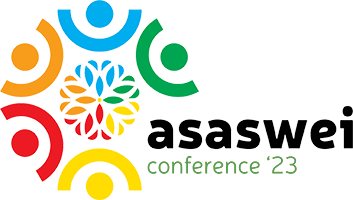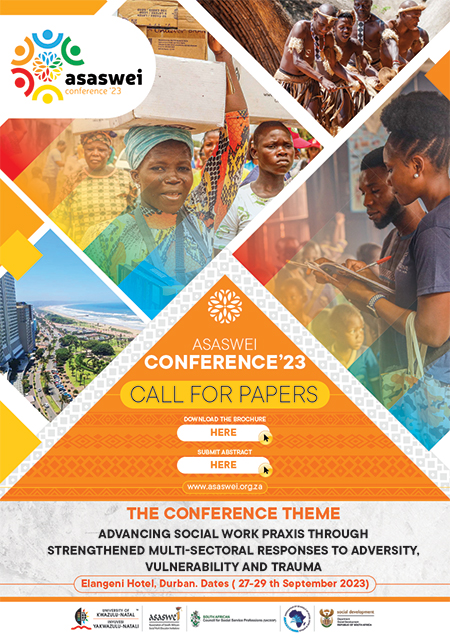The View page displays a submission's general information and data. Watch video
Submission information
Submission Number: 3
Submission ID: 3
Submission UUID: 277b8d3b-dd1b-4a4f-bbbc-b1f51d0c959b
Submission URI: /2023/abstracts
Created: Tue, 04/11/2023 - 12:17
Completed: Tue, 04/11/2023 - 12:46
Changed: Thu, 05/18/2023 - 13:52
Remote IP address: 160.226.235.91
Submitted by: Anonymous
Language: English
Is draft: No
Current page: Complete
Webform: Abstract
Presenters
Prof.
Reyneke
Roelf
University of the Free State
Roelf Reyneke is an adjunct professor in the Department of Social Work at the University of the Free State, where he served many years as HOD and program director. His research focus is social services in the education sector. He is currently the program coordinator of the Masters in School social work. Roelf has been a guest lecturer at European Universities and presented various papers at national and international conferences. He has published in journals and contributed multiple chapters to books. He is also the co-editor of Restorative school discipline: The law and practice.
No
Abstract
The improvement of the psychosocial health and well-being of children: Lessons from the Thari-programme
THEME 1: Promoting stakeholder partnerships that protect, support and enhance resilience during adverse events and trauma
SUB 1.2 The protection of physical and psychological health and wellbeing of children, people with disabilities, and older people through fostering safe, sustainable, and inclusive living spaces
Oral Presentation
Behavioural problems such as gang activity, substance abuse, volatile behaviour and class disruptions can negatively impact the health and well-being of children. The Adopt-a-school Foundation developed the Thari-program to provide psychosocial support to women and children. Interventions in schools, Safe Parks and a stakeholder forum strengthen the school community and promote the health and well-being of all. Eight schools in Botchabello, Free State that experienced high levels of gangsterism, poor academic results and other social issues formed part of this pilot project. Although a mixed methods approach (QUAL/quan) was followed to explore and describe the programme, this paper will only focus on two elements of the qualitative research: the behavioural problems children present with and the changes seen in schools during the implementation of the programme. Results show a decrease in gangsterism and psychosocial issues and less disruptive behaviour. Learners and educators also feel much safer in schools, and there was a change in the school culture. Lessons learned from this project will serve similar programs that would like to enhance the safety and well-being of school learners.
Reviewer ONE Feedback
Prof
Glynnis
Dykes
Yes
Empirical Research
Accepted
Reviewer TWO Feedback
Prof
Thulane
Gxubane
Yes
Empirical Research
Accepted

